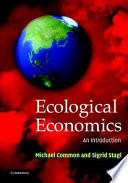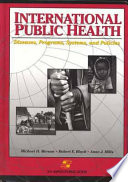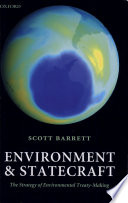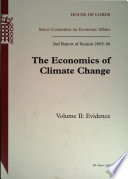 | Michael Common, Sigrid Stagl - 2005 - 600 pages
...major volcanic events, which release particulate matter into the atmosphere. The SAR had said that "The balance of evidence suggests a discernible human influence on global climate.' The TAR says that "There is new and stronger evidence that most of the warming observed in the last... | |
 | Stephen Codrington - 2005 - 781 pages
...present (actual) and from the present to 2100 (projected). The preliminary finding in 1995 concluded that 'the balance of evidence suggests a discernible human influence on global climate'. The conclusion reached in 2"(i] was considerably more alarming, L'sing six different projections about... | |
 | Michael H. Merson, Robert E. Black, Anne Mills - 2005 - 826 pages
...Climate Change The United Nations' Intergovernmental Panel on Climate Change (1PCC, 1996) assesses that "the balance of evidence suggests a discernible human influence on global climate." Further, trends in greenhouse gas emissions will, in IPCC's estimation, cause an increase in average... | |
 | Phil McManus - 2005 - 244 pages
...strategies' (O'Neill, et al, 2001, 32). It first reported in 1990. In its 1995 report the IPPC noted that 'the balance of evidence suggests a discernible human influence on global climate (IPCC, 1996, 4). By the time of its 2000 report the IPCC had strengthened its position to say that... | |
 | Ulrich Steger - 2005 - 288 pages
...than in earlier IPCC reports. While the second IPCC report of 1996 offered the cautious statement that "the balance of evidence . . . suggests a discernible human influence on global climate", we read in the third report that "most of the observed warming over the last 50 years is likely due... | |
 | Scott Barrett - 2003 - 460 pages
...Nevertheless, the IPCC felt sufficiently sure of the relationship to declare, in its 1995 report, that "the balance of evidence suggests a discernible human influence on global climate;" and in its follow-on report, issued in 2001, the IPCC strengthened this assessment, claiming that "most... | |
 | Marcel Leroux - 2005 - 544 pages
...considers that this phenomenon 'is a cause of drought and floods in many regions' (cf. Chapter 1 3). • 'The balance of evidence suggests a discernible human influence on global climate' According to the IPCC, there has been progress in assessing the additional greenhouse effect of sulphurous... | |
 | Dennis Pirages, Ken Cousins - 2005 - 292 pages
...beyond the 1995 IPCC climate-science assessment report, which had concluded for the first time that the "balance of evidence suggests a discernible human influence on global climate," the 2001 IPCC climatescience assessment report provided even more concrete evidence that socalled natural... | |
 | Great Britain: Parliament: House of Lords: Select Committee on Economic Affairs - 2005 - 324 pages
...that characterised the IPCC Second Assessment and served as the smoking gun for the Kyoto agreement: The balance of evidence suggests a discernible human influence on global climate. This is simply a short restatement of the basic agreement with the addition of a small measure of attribution.... | |
 | Mark Jaccard - 2006 - 408 pages
...(Cambridge: Cambridge University Press, 2001). Already, in its earlier 1995 report, the IPCC concluded, "the balance of evidence suggests a discernible human influence on global climate." See Intergovernmental Panel on Climate Change, Climate Change 1995, Second Assessment Report (Cambridge:... | |
| |